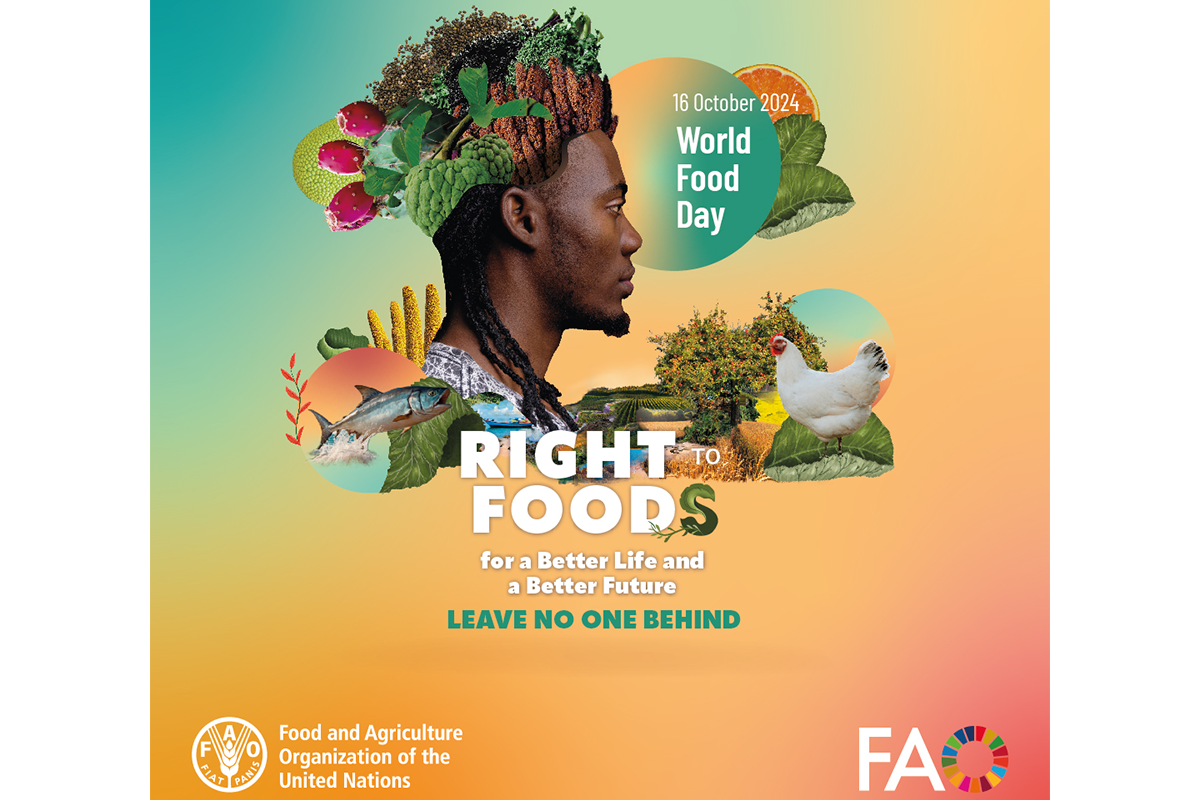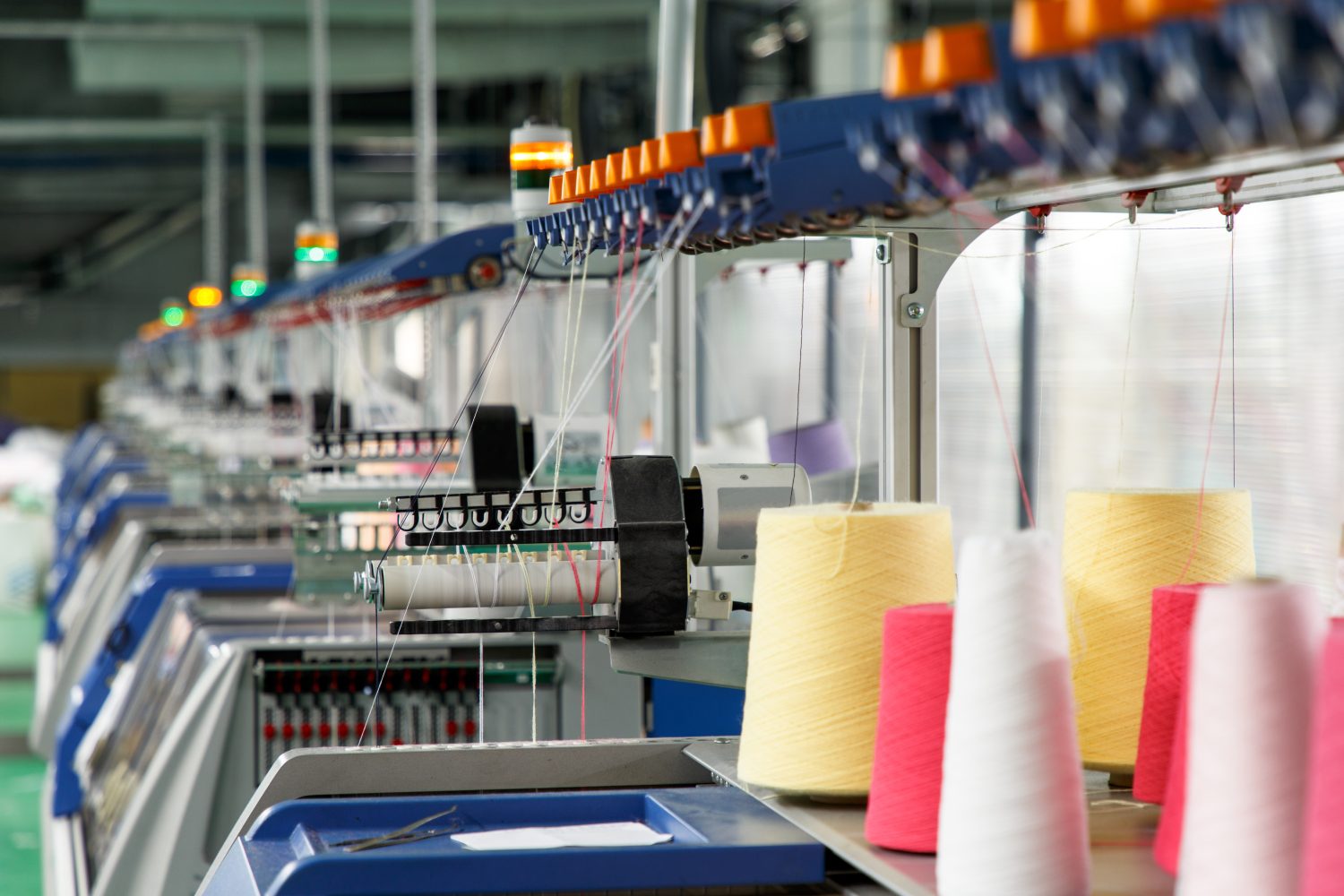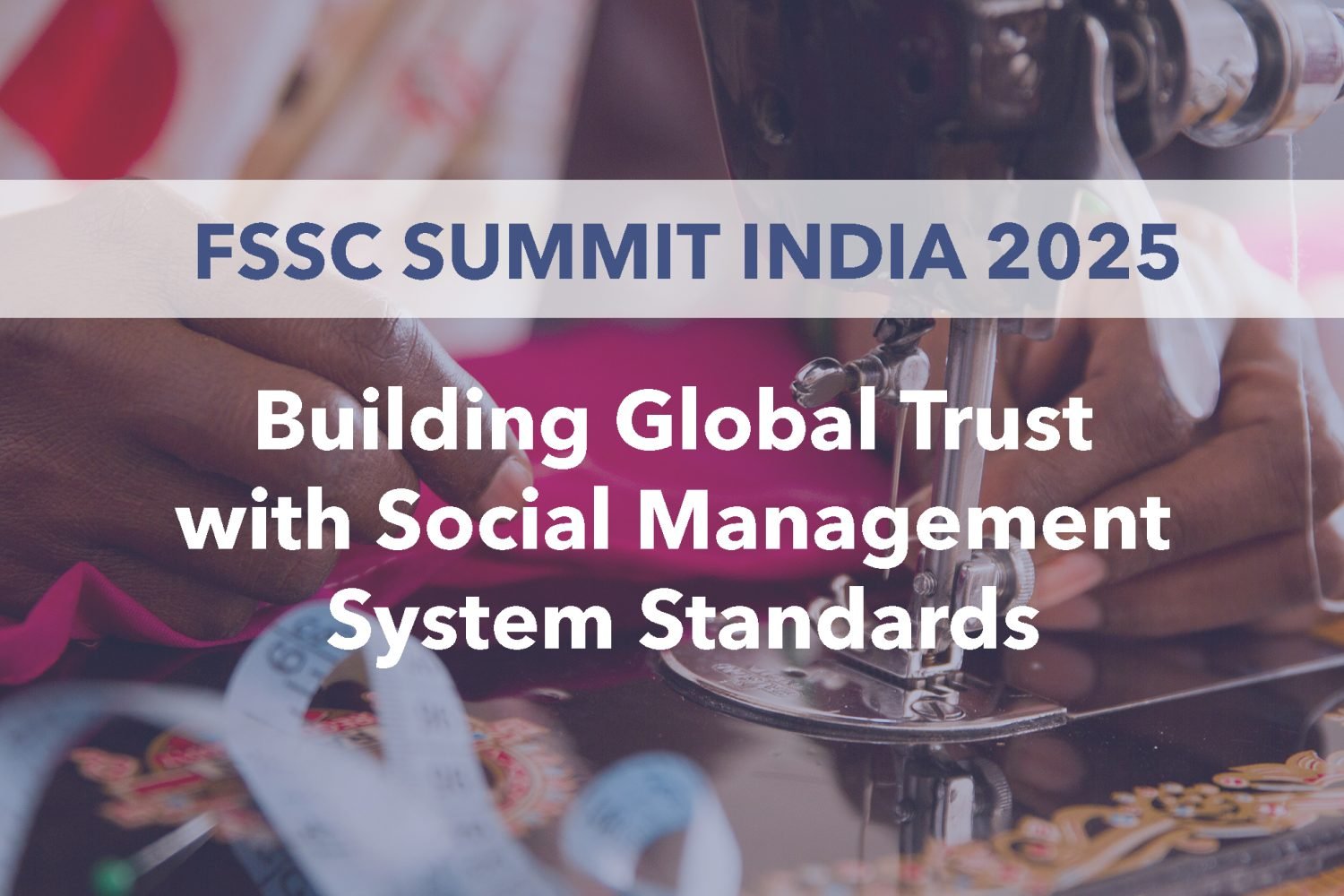World Food Day 2024: Right to Foods for a Better Life and a Better Future
World Food Day reminds us that everyone deserves access to safe, nutritious, and sustainable food—everywhere, every day. Achieving this requires action across the entire food supply chain.

It is a universal principle of life that we should all have access to enough nutritious, diverse, affordable, and safe foods—every day, everywhere. Yet, too many people worldwide still suffer from hunger, although if we adopted truly sustainable food systems, everyone would have enough to eat, and our environment would thrive.
Recognizing the work still to be done, this year’s World Food Day carries the theme Right to Foods for a Better Life and a Better Future. It highlights the need for safe food systems and social equity in food production. Supporting this vision, Foundation FSSC offers certification-based solutions that enhance access to safe, environmentally sustainable, and socially equitable food systems.
Food Safety: A Foundation for Food Security
Safe food is essential for achieving food security, a core focus of SDG 2 and World Food Day. When food safety standards are implemented across the supply chain, consumers can trust that their food is nutritious and safe. Food safety certification programs like FSSC 22000 help prevent food losses due to contamination or spoilage, ensuring that more safe food reaches consumers, particularly in regions with limited food access. This contributes to better nutrition and helps the global fight against hunger.
Access to safe food directly contributes to better public health by reducing the incidence of foodborne illnesses and promoting healthier diets. Food Safety Management Systems, such as FSSC 22000, protect products from contaminants, harmful chemicals, and pathogens, which aligns with SDG 3: Good Health and Well-being for everyone, everywhere.
The FSSC 22000 certification Program mandates safe and quality food along the global supply chain. By implementing international food safety standards and practices, Certified Organizations within the consumer goods industry help enhance access to safe food for all.
Social Sustainability: A Pre-Requisite for Inclusive Food Supply Chains
However, ensuring food safety is only part of the solution. Social sustainability must be a core component of a truly sustainable consumer goods industry. This year’s World Food Day underscores the need for systems that not only provide safe and nutritious food but also address social inequalities. The day advocates for affordable foods for all and addresses the gaps in food systems that disproportionately affect vulnerable populations, such as small-scale producers, women, and rural communities.
The 2030 Agenda’s promise to Leave No One Behind requires actions that cover the broader social and environmental impacts of food production. Foundation FSSC is committed to these actions through FSSC 22000 and its recently introduced certification program for social sustainability, FSSC 24000. Combined, the Programs enhance food safety and encourage responsible manufacturing practices that minimize environmental impact, reduce food loss and waste, and safeguard workers’ rights, thereby supporting a more environmentally friendly and socially responsible consumer goods industry.
The social management system under the FSSC 24000 Scheme ensures that Certified Organizations adhere to social sustainability standards. The Scheme upholds fair labor practices and supports the adoption of policies for greater equality. These include a living wage, safe working conditions, equitable treatment of workers, and respect for human rights, nurturing a socially responsible production and consumption culture in alignment with SDG 12.
Leading the Way in Socially Responsible Food Production
While FSSC 24000 applies beyond the food industry to sectors like textiles and leather, the food supply chain is a compelling example of how this certification program can transform industries and better lives by addressing economic and social disparities in the supply chain. For instance, consider Fauziyya, an Ivorian cocoa retailer who earns only a few cents for every 60kg of raw cacao she sells. Once processed and packaged as “superfoods,” the same product is sold to European consumers at €4 for a 200g bag.
FSSC 24000 provides a comprehensive framework for socially responsible behavior. It mandates that even the most overlooked actors in the value chain have their rights protected and their livelihoods sustained, allowing them to participate more fairly in the global (food) economy.
By adopting FSSC certification programs, organizations within the consumer goods industry are critical in improving food safety, reducing inequalities, and ensuring fair labor practices. Take action by integrating the FSSC 22000 and FSSC 24000 management systems into your operations and lead the way toward building a more sustainable and just food system worldwide.
Explore our insights
-
FSSC Summit India 2025
Hyatt Regency Hotel, Chennai, India
|
25 April, 2025
-
Insights Webinar FSSC 22000 - One Year of Version 6: Top Nonconformities and Guidance
Past event
|
25 March, 2025
-
FSSC Insights Webinar | FSSC 24000: Supporting CSDDD Social & Governance Challenges
Past event
|
12 February, 2025



